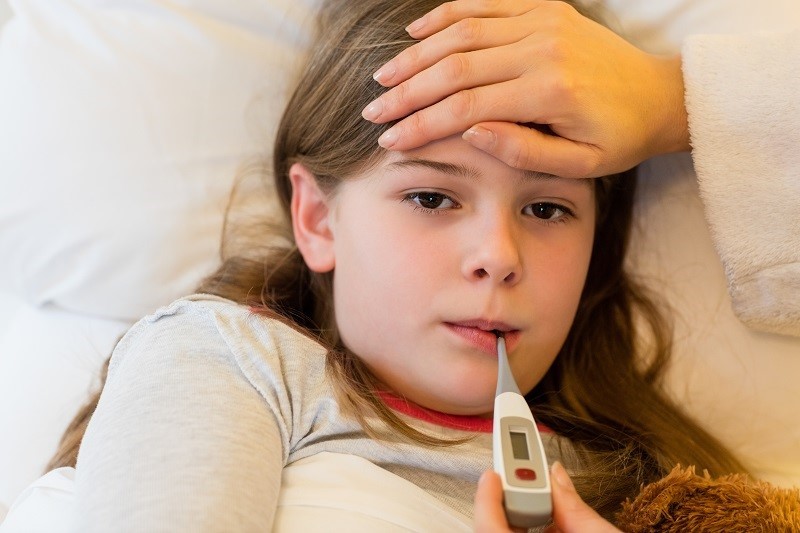FEVER: The Common Complaint
A temporary rise in the body temperature. It is the body’s response to any infection.
Average body temperature: 98–100°F (36–37°C)
If the body temperature rises above this, it is considered a fever.
While fever can be uncomfortable, it is a natural response of the body's immune system to fight off infections and should not always be suppressed.
Fever Symptoms
Depending on the underlying problem, the symptoms vary, which might include:
- Excessive sweating
- Chills and shivering
- Headache
- Muscle aches
- Loss of appetite
- Irritability
- Dehydration
- General weakness
What Causes Fever?
Fevers below 1040F (400C) are associated with common viral infections, like the flu, may help the immune system fight against disease and are usually harmless.
Other Causes:
- A viral infection
- A bacterial infection
- Heat exhaustion (water loss due to excessive sweating)
- Certain conditions like rheumatoid arthritis
- Certain cancers
- Some medications (antibiotics and drugs used to treat high blood pressure or seizures)
- Some vaccinations (diphtheria, tetanus, acellular pertussis (DTaP), pneumococcal, or COVID vaccine)
Fever Diagnosis
The best way to measure the body temperature is by using a thermometer that can be inserted-
- Orally (in the mouth)
- Rectally (in the rectum)
- Axillary (under the arm)
A tympanic thermometer or ear thermometer can also be used which measures the temperature of the eardrum.
Fever Treatment
A mild fever is the body’s mechanism or immune system’s response to bacteria, viruses, and other pathogens. It helps the body fight off infection.
Therefore, for a low-grade fever, your doctor may not recommend medications.
High fevers above 102 0F (38.9 0C) can cause discomfort and often require treatment.
Home Remedies for Fever
Stay comfortable by following these simple measures:
- Drink a lot of clear liquids such as water, broth, and juices or a rehydration drink
- Take a lukewarm bath
- Have enough rest
- Keep yourself cool with lightweight clothing and bed coverings


